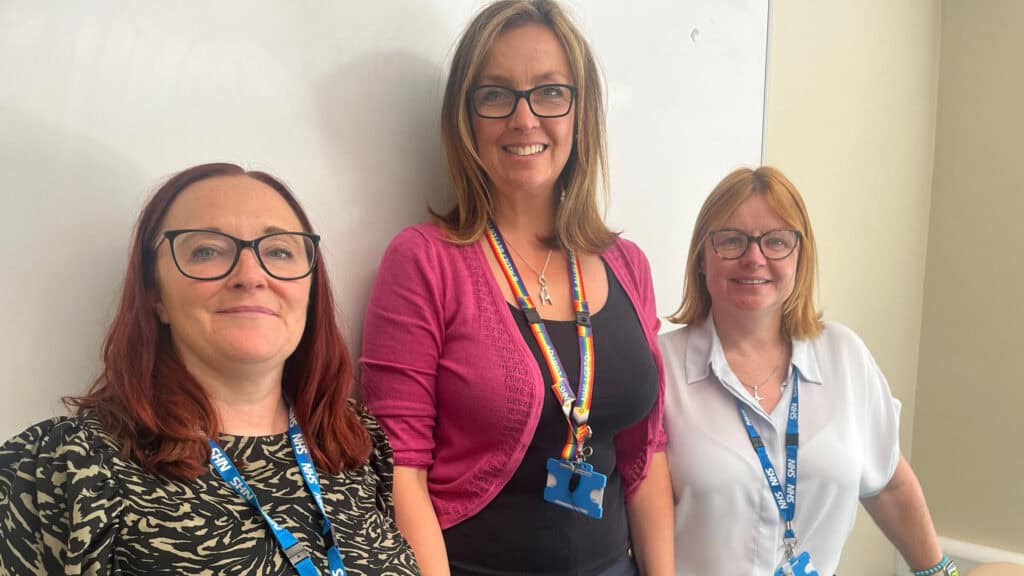In this new feature, we put teams within the collaborative in the spotlight.
A small team with a big responsibility, the quality team ensures the quality and safety of all commissioned services for mental health, learning disabilities and autism across Birmingham and Solihull.
The leadership team of three is made up of Sarah Bloomfield, director of quality and safety; Emma Watts, head of quality; and the most recent recruit, Emma Pickering, deputy head of quality and they are supported by a wider team/number of other teams within the collaborative to deliver the quality agenda.
What are the main responsibilities of the team?
We work with providers and other organisations across Birmingham and Solihull to support quality improvement and provide support and training around quality standards and assurance – from supporting small community organisations in the Voluntary, Community, Faith and Social Enterprise (VCFSE) sector right up to providing board level assurances to the BSol Integrated Care Board (ICB).
What does an average week look like?
On an average week it’s usually a mix of meetings and site visits. We could be chairing a progress meeting about quality improvement project, taking part in a contract review, presenting on quality assurance to the ICB Board or on a planned quality assurance (QA) visit as a result of concerns raised by staff, the safeguarding team or a complaint by patient or relative.
Whether planned or unplanned, the purpose of visits is to gather more information and get a big picture view of the situation – we’ll typically speak to staff, patients and visitors as well as look at data and records.
How does your team collaborate with others?
Because we work across the system, we’re in a really good position to share system learning, particularly with the smaller, independent providers we work with in the Voluntary, Community, Faith and Social Enterprise sector, and bring them into the fold, so that they feel part of the system.
What would you like people to know about your team that they may not already know?
We are also system unblockers, advocates for patients, conversation facilitators and also have to be pretty good at conflict resolution! We are all experienced nurses (Sarah in general nursing, Emma Watts in mental health and Emma P in learning disabilities) which I think helps with many of these skills, and it also helps us keep patients at the centre of everything we do.
In our roles, it’s important to be professionally curious, keep our eyes and ears open, and ensure that we make connections between mental health and learning disabilities and autism.
What are you most proud of?
We have worked hard to build good relationships and trust with our providers and create a ‘just culture’ – so that openness and honestly is two-way. It’s really important for us to demonstrate that while we’re here to hold service to account, we’re also here to offer support, expertise and share learning. For example, some of our smaller providers in the VCFSE get concerned when they receive formal NHS letters with requests for information – some of the language is not familiar to them and can raise unnecessary concerns. We can ‘decode’ the letter and offer reassurance as well as supporting them with what’s required.
What are your goals for the next 12 months?
One of the big pieces of work we’re involved with is the work around improving care for out of area patients and helping to reduce the number of patients going out of area.
When we send patients out of area, we still have to be assured that they are getting the same quality of care that they would be in one of our beds – so that’s part of our role. Luckily, there has been a lot of improvements already in this area – systems and processes are much more robust and there is more appetite from providers to get people back into area.
We’re also working with colleagues in learning disabilities and autism services around pathways of care for people with a concurrent mental health and autism diagnosis. Too often they end up in an inpatient bed, and it’s not the best place for them.
Over the next 12 months we also want to support work around reducing health inequalities. We know that certain parts of the city generate fewer referrals, so we need to better understand why. We’re in a good position as a system wide team working with providers to look at the data we have and triangulate what’s going on in different areas.
How do you see what you do changing in future?
At the moment we’re building the foundations – forming relationships with partners and providers. In future, I hope in future we can be less reactive, more transformational and better at identifying health inequalities.
I also hope that that, collectively as a system, we can start to close the gap on life expectancy for people with mental health and learning disabilities or autism.



